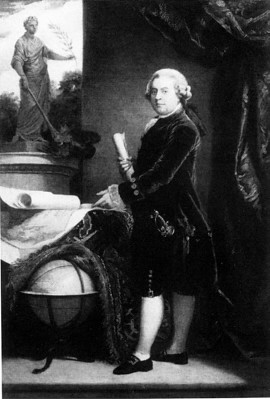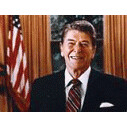Mark Levin Speaks with Bob Bennett about Keating 5 and Iran-Contra
For the complete broadcast which includes this interview, follow this link.
Mark Levin (Levin): Well, I want to welcome Bob Bennett to the show. Bob Bennett is one of the most exceptional and successful lawyers in the nation. He's represented everybody from Bill Clinton to Caspar Weinberger. He happens to be the older brother of a man I deeply admire and who is a terrific radio host, Bill Bennett. How are you, sir?
Bob Bennett (Bennett): Fine, Mark, how have you been?
Levin: I'm very well. Do you remember meeting me a few times?
Bob: "Oh, I remember, absolutely."
Levin: I was the handsome one, remember?
Bob: You were the good looking one, I remember that.
[laughter]
Levin: Well, first of all, your book, In the Ring: Trials of a Washington Lawyer. We've linked to that on marklevin.com. It's a terrific book and that is why I want to talk to you.
Bob: Thanks, Mark, yeah.
Levin: You have a chapter on the Keating 5. And Bob, this is very important, now, because, people are bringing up, i don't want to drag you into politics, but people are bringing up William Ayers, and suddenly this Keating 5 thing pops up again. Why don't you tell us, give us a thumbnail sketch of what happened there and what was the deal about John McCain.
Bob: I'll stick to the public record. What my role was - I was hired by a bi-partisan Senate Ethics Committee to investigate what was known as "The Keating 5". And in essence, what it was, was that there was something called the Direct Investment Rule which Charles Keating was opposed to. What it did was it basically said that Savings and Loans, which he owned one, couldn't, were limited in where they could invest their money. Senator DiConcini scheduled a meeting with several Senators to meet with the head of the Federal Home Loan Bank Board and pressure them.
And, Senator McCain attended that meeting. And one thing led to another and the Ethics Committee conducted an investigation. And I investigated it for a long, long time, well over a year. For the purpose of determining whether or not the Senators, including McCain, violated any standards, rules, ethical prohibitions. And at the end of the investigation, I concluded that Senator McCain and Senator Glenn should be exonerated, that is, that there should be no further action against them, but that was rejected by the Committee and there were some twenty-six days of public hearings.
As you know, Mark, 'cause on the occasions we've met, I- we argued some. I'm a Democrat, as you know. But, I had to call it the way the evidence dictated, and I called it that John McCain did nothing wrong. How Heflin, who at the time, was the Chairman of the Committee, was very concerned that there be twenty-six days of hearings with only Democrats in "the docks", so to speak, so my recommendation about exonerating Senators Glenn and McCain was rejected and we went forward. But... it's....and at the end of the day, it was pretty clear, from all the evidence, that there was no violation by Senator McCain.
I'm sorry to be so long but that's in a nutshell, what happened.
Levin: Well, it's important, because it's a long time ago, we have five and a half million people listening and we gotta get this right, Bob. And, it seems to me, that based on what you're saying, based on what I've read in your book, and what you've said before, frankly, that he was thrown into this for political reasons, and it's being raised again, you don't have to answer the last part, I'm commenting, it's being raised now for political reasons. John McCain is not an unethical man, can you, can we agree on that?
Bob: Let me say this: from all the evidence, he's not a friend of mine, although I guess, in the spirit of full disclosure, years after the Keating case, just this past year, he hired me as a lawyer, to represent him in connection with this dispute about lobbying he was having with the New York Times. But, at the time I made my findings, I was totally independent, and I'm not a surrogate of his in this political.... You know, I represent too many people on both sides of the aisle. But the direct, that as background, I certainly saw nothing in my investigation that would call into question, John McCain's ethics. When he learned that there had been a referral to the Justice Department by the regulators, uh, he withdrew from any assistance to Keating and in fact, got into a big argument with Charles Keating, who called McCain "a wimp", which did not sit well with the Senator. So, I certainly, based on my investigation in that case, saw nothing to call in to question John McCain's ethics.
Levin: And you've represented, you're right, people of all political stripes and so on. Let me askyou a little bit about that if i could segue.
Bob: Sure.
Levin: Casper Weinberger, you represented him in the Iran-Contra matter. I represented Attorney General Meese. Now, what kind of a man for you, was Casper Weinberger?
Bob: Oh, I think he was the tops. I mean, I have never seen such prosecutorial abuse in my life as I saw in the Weinberger case as I saw in, by former Federal Judge Lawrence Walsh. It was a terrible abuse of power. You know, Weinberger was the former Secretary of Defense and yet, Walsh was, I was about to say he was so close to me as you are now, but we're not very close we're on the phone [laughter], but I was about three feet away from the man, and he, Walsh, basically said to me and my partner, Karl Rauh, he said, "If you'll turn on Ronald Reagan, we'll give you a no jail-misdemeanor plea." I left the meeting shaking my head and I said to Carl, who was the former U.S. Attorney in Washington, "Do you belive what we just heard? This guy's gunning for Ronald Reagan." And it was one of the most incredible experiences I've had in my life. Weinberger was just a class act and a real statesman. You know, I didn't agree with him on a lot of things, he was a conservative Republican and I'm a democrat. But he was one terrific human being.
Levin: As a side note, I remember having to go into the vault there in the Justic Department, you know, our hands were tied there lots of times, weren't they Bob?
Bob: Yeah sure.
Levin: And reading some of the Grand Jury stuff, which we're only allowed to read, and we could use it, but we had to write it down by hand [Bob: Yeah, right] or whatever, and I remember going back to Ed Meese and saying, "These bastards are trying to indict you. I said, "I can't believe it." And they wanted to indict Schultz, and they wanted to indict Weinberger. I said, "My God, these guys are getting out of control."
Bob: Well, you know, Mark, Weinberger thought he was a cooperating witness for Walsh, you know, being Secretary of Defense and having all of the government [inaudible], it wasn't unusual for him to get requests, and for five years, he thought he was a cooperating witness because if you remember, he was opposed, vehemently opposed to the sale of arms to Iran, and he then got a target letter. I really appreciate you mentioning the book, In the Ring. I do have two chapters in the book, one is dedicated in the book to the Keating 5 and a chapter in the book dedicated to this Weinberger case.
Levin: Do you still represent Bill Clinton?
Bob: No, no, that matter is over with.
Levin: I don't mean...I mean, if he needs something, does he still call on Bob Bennett, or does he have a bunch of lawyers?
Bob: You know, I wouldn't tell you if he did, Mark.
Levin: Ok.
Bob: You know, If I could just make a point, because you mentioned it earlier on, I just hope that Senators Obama and McCain stick to the issues and I'm really worried, I know you feel [Mark: Not really.] as I do, that this politics of personalization, these politics of personal destruction, is awful and I just hope they just get on and discuss the issues.
Levin: Well, you know, hope is what it is, my friend.
Bob: Yeah.
Levin: One of these days, a nice thick steak, how do you like your steak done?
Bob: Well, I like it, I prefer it on the well done side.
Levin: I do, too.
Bob: If you talk to any real, you're going to get calls, this is the only thing you're going to get calls on [laughter], I'm told real cattle people, they won't eat their steak raw or rare, they want it done, they really don't want it rare or raw, I'm so curious...
Levin: I've had lunch a couple of times with Bill in years past. How does he like it, well done or doesn't it?
Bob: As long as it doesn't bite back, Bill likes it. [laughter]
Levin: Ok, folks, get this book. It's a fascinating book: In the Ring: The Trials of a Washington Lawyer. It's got a chapter right there on the Keating 5, a chapter on Weinberger, and a there's a lot more than that.


 "We contend that for a nation to try to tax itself into
prosperity is like a man standing in a bucket and trying
to lift himself up by the handle."
"We contend that for a nation to try to tax itself into
prosperity is like a man standing in a bucket and trying
to lift himself up by the handle."






0 comments :
Post a Comment